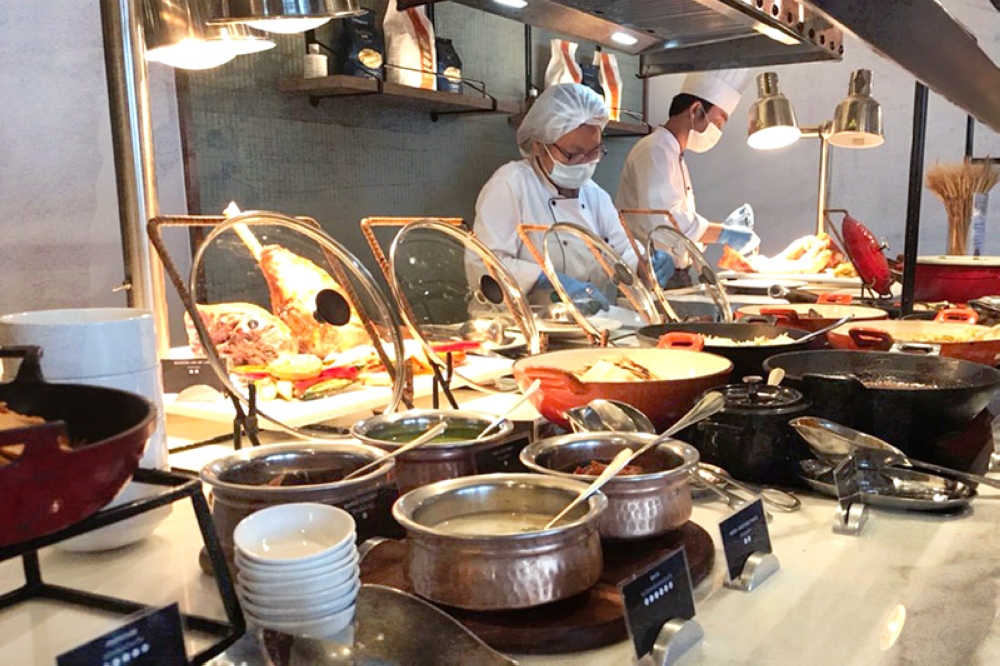COMMENTARY, March 7 — With Google Reviews and the rabid comments section of social media pages, it can seem as though everyone is a food reviewer or restaurant critic nowadays. If this were true, however, the professionals would be out of a job.
Simply skimming through some of these reviews of disappointing restaurant experiences soon reveal that most resemble rants rather than constructive feedback. Not unlike toddlers throwing tantrums, albeit with the shield of online anonymity.
To be clear, every customer who visits a restaurant or café has their own take on what’s good and what’s not. Every opinion, it can be argued, is a valid one.
What differentiates the helpful comments from the harangues might well be the tone and the delivery.
Perhaps a guide then, on how to leave a fair restaurant or food review (as presumptuous as this might sound), offered in the spirit of better communication between customers and the hardworking folks who feed them.
Bear in mind that this list is non-exhaustive and is only meant to offer food for thought (pun intended) the next time you feel like leaving a review about an eatery you just visited.
1. Wait before starting a war
It can be tempting to leap into the fray and compose an epic epistle on how a restaurant, their staff and all their combined ancestors have wronged you (How dare they??).
Instead, take a deep breath and go for a walk instead. Allow your emotions (and opinions) to settle. Don’t get into such a rage that you say something you’d regret (or harm an otherwise innocent party).
Taking some time out will also give you a chance to analyse and figure out what went wrong with your dining experience. Which brings me to my next point:
2. Be clear about what you are reviewing (and what you’re not)
Do you actually know what you’re evaluating? Is it the food or the service? Maybe it’s the cleanliness of the eatery or the prices on the menu. Might it even be the noise from the neighbouring table or the type of music that is being played?
Too often I see reviews that go: “The restaurant is famous for A, B and C but they ran out of it. I had XYZ instead and it wasn’t good. Overrated.”
Which makes me wonder, what is this customer rating, really? The disappointing dish they had or their disappointment from missing out on the dish everyone else enjoyed?
Far too often, many of us get into a rant about how much we loathed our experience at the restaurant without actually getting into the real reasons why. Clarify so the restaurateurs can address your issue rather than wonder why someone is shouting at them in ALL CAPS online.
3. Be polite, objective and non-confrontational
Therefore: Don’t shout. Act appropriately online, the way you would if you were still in the restaurant itself. Though I’m sure some people are happy to bawl and bellow in person too.
For the rest of us, it helps to be polite and non-confrontational. No need to get emotional or make personal attacks here.
Stay objective: “I found the bread to be dry and difficult to chew” rather than "Your bread isn’t as good as The Other Bakery Opposite The Street.”
It helps the restaurant owner understand what we are displeased with and then, hopefully, work on improving or coming up with a solution.
4. Walk a mile in the restaurant’s shoes
For those who swear by the commandment "The customer is always right”, this sounds downright crazy. Why should we care about their point of view when ours is obviously the only one that matters?
Calm down.
When we leave a harshly worded review, quite often we have no idea what is going on behind the scenes. Could the restaurant be a tightly run outfit but an employee or two called in sick today and they’re all doing the best they can?
You’re annoyed by the din from the table next to yours, yes, but did you inform the manager? Contrary to popular belief, F&B service personnel aren’t mind readers.
(If they appear that way, it’s only because they are professional and pretty good at what they do – most of the time – that if feels as though they can read your mind.)

When I observe busy cooks at a hotel’s buffet line (most restaurants don’t have an open kitchen so we have no idea how hectic the back-of-house gets), I can’t help but be grateful for these food heroes standing for hours on end to serve us a hot meal.
Perhaps this is a strange notion but no one is out to ruin your day. True, some servers and chefs can be cold or grumpy but engaging them in warm conversation would extract a smile from even the sourest of sourpusses.
5. Understand what the restaurant serves (and what they don’t)
Here it might also be helpful to learn more about the restaurant you’re patronising or the food they are serving. What is their price range and what are their opening hours? Do they accept reservations and is there a minimum order per customer?
For instance, if the restaurant doesn’t serve alcohol then it hardly makes sense to launch a tirade about their lack of a wine menu, right?

The reality is some customers have no idea what they are eating or why the cuisine is unique. When is pasta al dente and when is it just plain undercooked?

Other areas might be greyer. Authenticity and cultural appropriation, especially, can be contentious subjects. What’s your take on serving Japanese sashimi with Korean fried chicken wings?
Whatever the cuisine, the restaurant should probably take an active role in sharing knowledge with customers instead of brusquely ignoring their questions.

At certain fine dining establishments, the head chefs may even come to your table to explain their craft - but this isn’t a duty.
6. Don’t demand answers. Offer suggestions instead
Sometimes we forget that F&B purveyors are people too. They cook for us and bring food to our tables; for some of us, they are our therapists as they ask about our day and listen to all our tiny little dramas (when it’s not peak hours, of course).
This is a privilege.
When something is inadequate, we should offer our feedback but know that we won’t always get a reply or, if we do, not necessarily a satisfying answer.
Most professional restaurateurs care deeply about customer feedback and strive to get back to you but don’t forget that they are very busy people too.
Running an all-hands-on-deck business means that they might not have the bandwidth to sort out disgruntled online reviewers immediately.
More likely than not, they have more pressing matters at hand... such as customers who are in their shops right now.
Now this is a touchy subject and many might disagree, but why not offer some suggestions on ways to improve? (Again, only specific to your area of complaint.)
Sure, your suggestion might not be useful or even valid. But it does show you understand that the deficiency is something that can be remedied.
(Clearly this is but one part of the equation. For the other side of the story, how ought F&B operators respond to customer feedback in an equally constructive manner? Perhaps that is another conversation to be had...)
In conclusion, be civil. Be fair and honest in your review. You don’t have to be fawning – after all, you’re unhappy about some aspect of your dining experience – but there is no need to be horrible either.
Briefly, a four-step guide to leaving a helpful "restaurant review”:
1. List some basic information: the date/time of your visit, which branch (if relevant), how many at your table or who your server was;
2. State what was unsatisfactory and explain in detail, without getting emotional;
3. Share how you’d have preferred it was handled, i.e. a recommendation or call to action; and
4. Consider sharing some pros to the cons: what was good and what you did appreciate, if any, to make your review more balanced.

Some might debate whether it is better to have bad reviews – "there is no such thing as bad publicity” – than no reviews at all and an empty eatery. Wouldn’t it be better though to become more skilful at leaving useful feedback that the restaurant can act upon?
Why not go for win/win? Remember: when in doubt, always take the high road.
For more slice-of-life stories, visit lifeforbeginners.com.
* Follow us on Instagram @eatdrinkmm for more food gems.






















